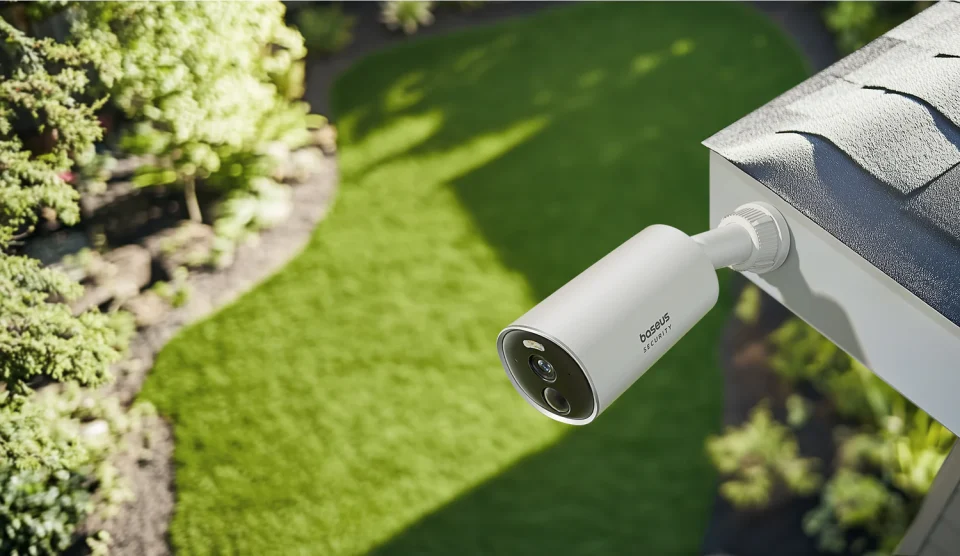When it comes to home security, choosing between wired vs wireless security cameras is a critical decision. Both options offer unique advantages and challenges, and understanding their differences can help you select the system that best fits your needs. Baseus Security, with its commitment to “Privacy First. Reliable Always,” provides cutting-edge solutions in both categories, ensuring your home remains protected. This article explores the key factors to consider when deciding between wired and wireless security cameras.
Wired Security Cameras: Stability and Consistency
Wired security cameras are connected directly to a power source and a recording device, typically via cables like Ethernet or coaxial. This setup ensures a stable and uninterrupted connection, making them a reliable choice for constant surveillance. Because they don’t rely on Wi-Fi, wired cameras are less susceptible to signal interference, hacking, or network outages, aligning with Baseus Security’s emphasis on privacy and reliability.
One major advantage of wired cameras is their consistent power supply. Without the need for battery replacements or recharging, they’re ideal for long-term, continuous monitoring. They often deliver higher video quality, as the direct connection supports larger data transfers without compression. For example, Baseus Security’s wired cameras offer crisp 4K resolution, ensuring every detail is captured.
However, installation can be a drawback. Wired systems require professional setup or technical know-how to route cables through walls or ceilings, which may increase costs. They’re also less flexible if you need to relocate cameras. For homeowners seeking a permanent, robust solution, wired cameras are often the go-to choice.
Wireless Security Cameras: Flexibility and Convenience
Wireless security cameras, on the other hand, operate over Wi-Fi and are powered by batteries or, in some cases, solar panels. Their primary appeal lies in their ease of installation and flexibility. Without the need for extensive cabling, you can place wireless cameras almost anywhere, making them ideal for renters or those who frequently rearrange their setups. Baseus Security’s wireless cameras, for instance, feature simple plug-and-play installation, allowing users to set up a system in minutes.
These cameras are also highly scalable. Adding more units to your security network is straightforward, as no additional wiring is required. Many models, including those from Baseus Security, offer smart features like motion detection, mobile app integration, and cloud storage, enhancing user convenience. However, wireless cameras depend on a strong Wi-Fi signal, which can be disrupted by distance, walls, or other devices, potentially affecting performance.
Battery life is another consideration. While some wireless cameras boast long-lasting batteries, frequent use or features like night vision can drain power quickly, requiring regular maintenance. Security is also a concern, as wireless systems can be vulnerable to hacking if not properly encrypted. Baseus Security addresses this with advanced encryption protocols, ensuring your data remains private.
Making the Right Choice
Choosing between wired vs wireless security cameras depends on your priorities. If reliability and high-quality footage are paramount, wired cameras are the better option. If flexibility and ease of installation are key, wireless cameras may suit you best. Baseus Security offers both, combining privacy-first technology with dependable performance to keep your home safe.

